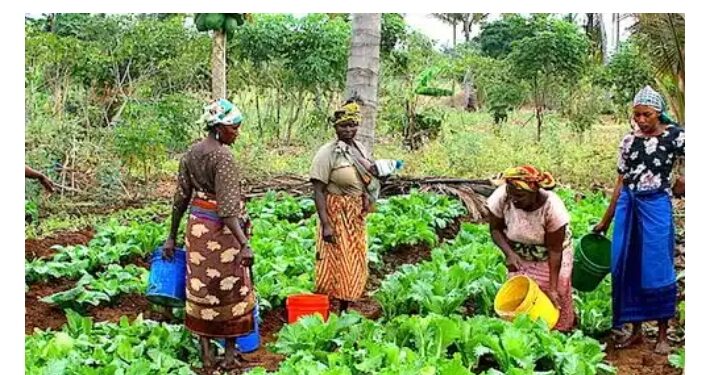SmallScale Women Farmers Organisation in Nigeria has urged government at all levels to intervene in gender-based discrimination regarding access, control over land, and participation in land governance.
SWOFON also urged governments to commit 10% of their annual budget to the agriculture sector to meet the 10% Maputo/Malabo Declaration required to support at least 6% growth rate for the sector as postulated in the CAADP framework.
The organisation further urged the government to urgently address insecurity in the rural areas that prevents smallholder farmers from accessing their farmlands for food production.
The National President of the organisation, Fatima Gummi, disclosed this in a charter of demands in a statement made available to journalist in Abuja.
The women farmers’ group advocates for rights and privileges from duty bearers while serving as vocal and visible pressure group on behalf smallholder women farmers in Nigeria.
Gummi noted “government should address gender-based discrimination regarding access, control over land, and participation in land governance.
She said “Government should urgently address the insecurity in the rural areas that is preventing smallholder farmers from accessing their farmlands for food production.
“The three tiers of government should commit 10% of their annual budget to the agriculture sector to meet the 10% Maputo/Malabo Declaration required to support at least 6% growth rate for the sector as postulated in the CAADP framework and ensure timely and total releases of the agriculture budgets towards food security, unemployment reduction and poverty eradication.
“Governments should invest in Agroecology to build the capacity of smallholder women farmers on climate change mitigation and adaptation strategies and make provision for to organic inputs such as fertilizers and organic pest control.
“The Federal and State Governments should invest massively in rural roads to support transportation of agriculture produce and trade,” she said.
While charging government to provide trainings on post-harvest loss reduction for women farmers should be increased, the group said solar dryers should also be provided to smallholder women farmers cooperatives in communities based on agriculture produce that can be dried to save losses.
She pointed out “The Federal and State Governments need to urgently invest in small cottage processing and storage facilities in communities based on different commodities to be owned, operated, sustained, and expanded by smallholder women farmers cooperatives. This will help address the challenges of postharvest losses experienced by smallholder women farmers across Nigeria.
“Budgetary allocations should go to strategic areas of investments which include Extension Services, Access to Credit, Women in Agriculture, Youth in Agriculture, Appropriate Labour-Saving Technologies, Inputs, Post-Harvest Losses Reduction Supports (processing facilities, storage facilities, trainings, market access, etc.), Climate Resilient Sustainable Agriculture (CRSA)/Agroecology, Research and Development, Monitoring and Evaluation, as well as Coordination,” SWOFON said.











